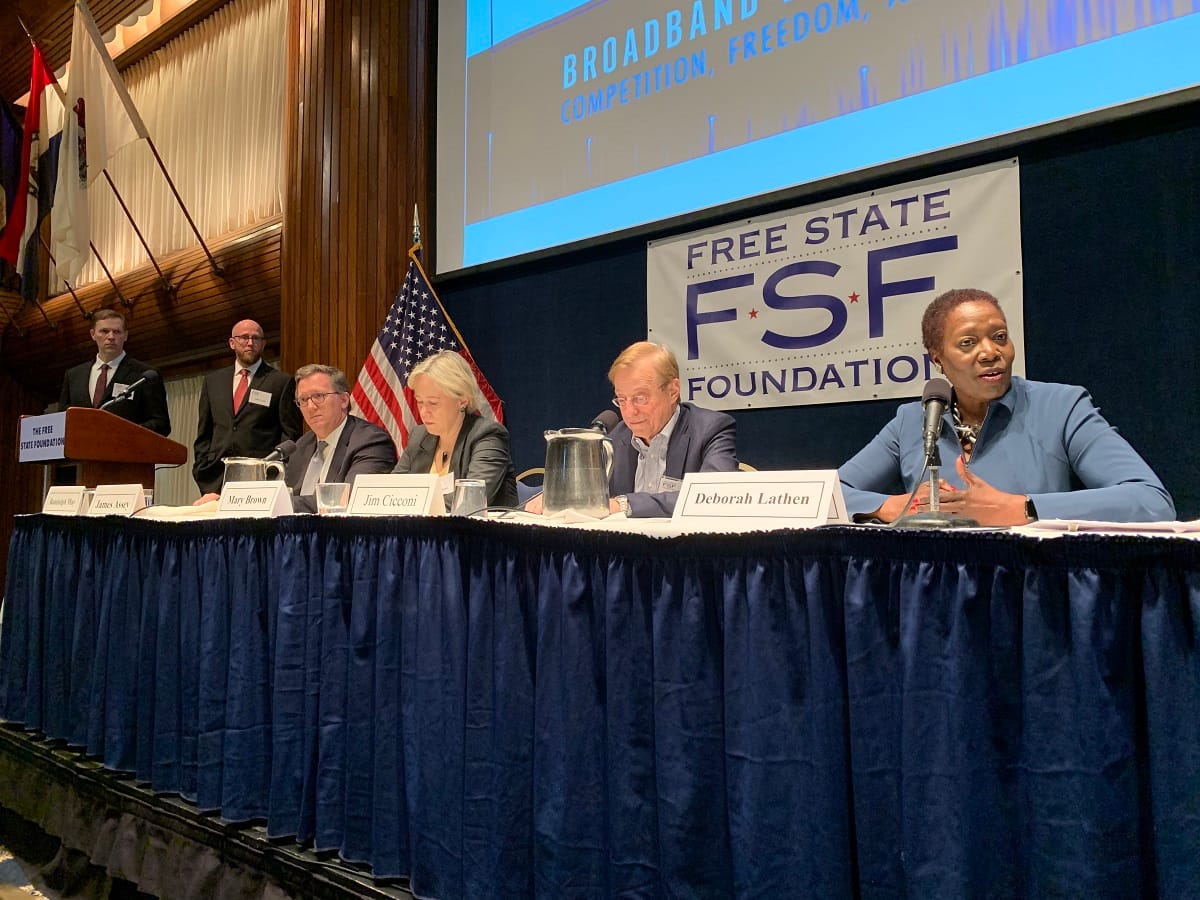Tech and Telecom Companies Criticize Broadcasters Spectrum Usage (or the Lack Thereof) at Free State Foundation
WASHINGTON, March 24, 2020 – Telecom industry panelists criticized the broadcast industry’s lack of use of 90 percent of the spectrum licensed to them, officials said at the Free State Foundation conference on Tuesday, March 10. “Much of it is sitting fallow today,” said James Cicconi, senior execut

WASHINGTON, March 24, 2020 – Telecom industry panelists criticized the broadcast industry’s lack of use of 90 percent of the spectrum licensed to them, officials said at the Free State Foundation conference on Tuesday, March 10.
“Much of it is sitting fallow today,” said James Cicconi, senior executive vice-president of legislative affairs at AT&T.
Foundation Senior Fellow Seth Cooper agreed. He referenced the upper hundred channels of his television box. “Is anybody out there watching this stuff?” he asked.
The panelists used this comment to springboard into a discussion on the FCC’s proposed C-Band auction, then and still scheduled to be held on December 8, 2020.
“We’re gonna need to be patient here and see if the FCC’s paradigm takes us to a happy conclusion,” said Mary Brown, senior director for Spectrum Policy at Cisco, adding that “it’s very tough to clear the band.”
Brown also mentioned the importance of having economic incentives so that “incumbents give up the spectrum.”
“Who gets to use it for what?” asked Deborah Lathen of the Multicultural Media, Telecom and Internet Council.
Lathen pointed out that different groups want a slice of spectrum for different reasons. Content companies want it for streaming, and the black caucus wants it to uplift sluggish rural communities. She concluded to the audience that spectrum “is really a balancing act.”
The panel also touched on the issue of data privacy legislation.
“I continue to believe there’s a pony in there somewhere,” Cicconi said, explaining that he is “fairly optimistic that something gets done” by the government on the subject of data privacy.
For example, the government has successfully dealt with the issue of preemption in environment despite that policy being “much more complicated.”
Lathen was a bit more skeptical. “Most times facial recognition doesn’t work on people with my hue,” said Lathen, a black woman. She acknowledged that the subject of data privacy is “clearly obvious and urgent,” but also that “we live in Washington and we know how dysfunctional the Hill is.”
“The only thing that’s gonna change that is the 2020 election and who gets in office,” Lathen said.








